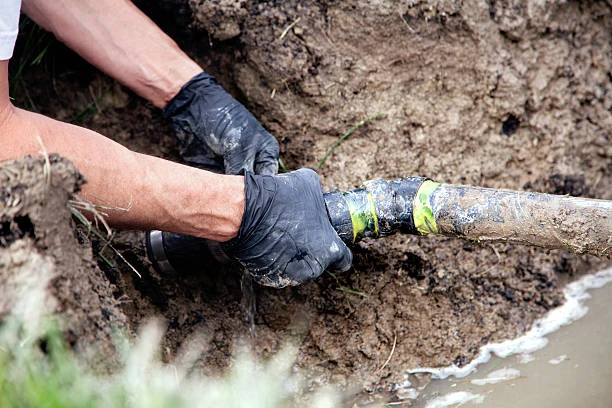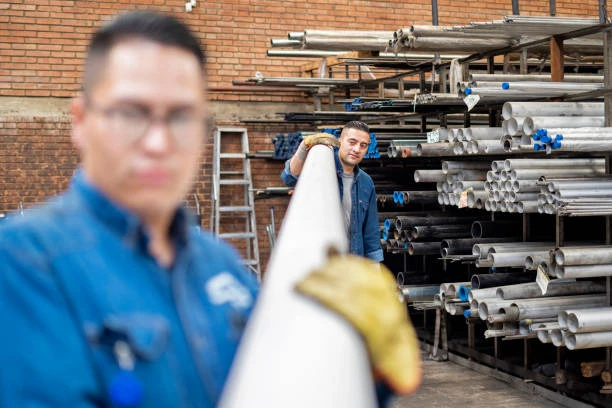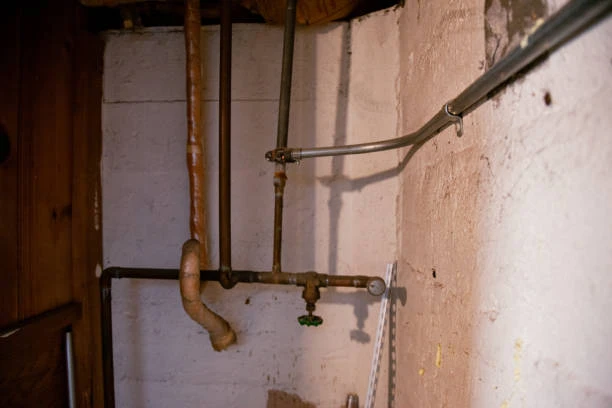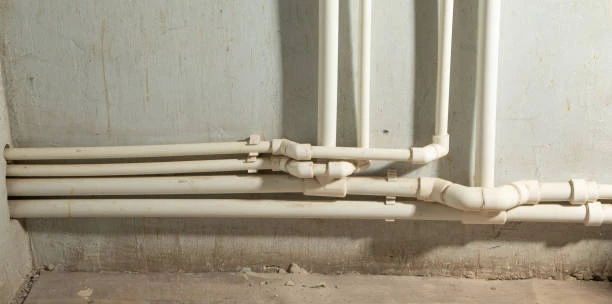Faucet Maintenance to Prevent Lime Scale Buildup
Wall mounted water taps are a practical and stylish choice for both kitchens and bathrooms. However, over time, they can become affected by lime scale buildup—especially in areas with hard water. Lime scale not only spoils the look of your tap but can also reduce water flow, damage internal components, and shorten the tap’s lifespan. This comprehensive guide will help you understand how to prevent lime scale buildup, maintain your faucet, choose the right components, and understand the difference between brass and plastic valves.
Frequently Asked Questions (FAQ)
1. What causes lime scale buildup in wall mounted water taps?
Lime scale results from calcium and magnesium deposits left behind when hard water evaporates. It usually appears as a white or chalky residue.
2. Can lime scale damage my wall mounted water tap?
Yes. Over time, lime scale can block water flow, corrode internal valves, and reduce overall tap efficiency.
3. How often should I clean my tap to prevent lime scale?
It’s best to clean your tap with a mild descaler or vinegar solution every 1–2 weeks, especially in hard water regions.
4. Are certain materials more resistant to lime scale?
Yes. Brass valves and chrome finishes tend to resist scale better than plastic or untreated metal surfaces.
5. Can I remove lime scale without replacing the tap?
Absolutely. Regular cleaning and occasional part replacements (like washers or valves) can extend the life of your wall mounted water tap significantly.
Brass Valves: Definition and Key Features
A brass valve is a critical internal component found in many high-quality wall mounted water taps. It regulates water flow and temperature and plays a major role in the tap’s performance.
Characteristics of Brass Valves:
Durability: Brass is a strong metal that resists cracking and general wear.
Anti-Corrosion: Unlike iron or steel, brass doesn’t rust when exposed to water.
Thermal Stability: Brass can withstand high and low temperatures, making it perfect for both hot and cold water systems.
Low Maintenance: With minimal cleaning and regular use, brass valves continue to perform efficiently.
Safe for Drinking Water: Brass has a naturally antibacterial surface, which improves hygiene in kitchen or bathroom installations.
Brass valves are generally considered the gold standard in plumbing for both performance and longevity.
Common Applications and Industries
Wall mounted water taps and their internal brass valves are used across a wide variety of environments, thanks to their functionality, hygiene, and modern appearance.
Key Uses Include:
Domestic Kitchens and Bathrooms: Ideal for saving countertop space and adding a sleek aesthetic.
Commercial Kitchens: Offers easy cleaning and resistance to scale in high-use areas.
Healthcare Facilities: Minimises contact points, promoting hygiene in hospitals and clinics.
Schools and Public Washrooms: Durable and vandal-resistant options make wall taps popular in high-traffic environments.
Industrial Buildings: Handles heavy-duty use and resists scale and corrosion in mechanical settings.
Because of their flexibility and strength, wall mounted water taps remain a top choice across industries.
Buying Guide: What to Look for When Choosing a Wall Mounted Water Tap
Selecting a high-quality wall mounted water tap is more than just about appearance. The material, valve type, and construction all affect performance, especially when considering lime scale prevention.
1. Material Matters
Choose taps made from solid brass or stainless steel with anti-corrosion coatings. These resist lime scale better than cheaper zinc alloy or plastic taps.
2. Finish and Coating
Opt for chrome or nickel finishes. These not only look stylish but also offer added protection against mineral buildup and water spots.
3. Valve Type
Always check whether the tap uses ceramic disc valves or brass compression valves. Ceramic is smooth and drip-free, while brass lasts longer under variable pressure.
4. Certifications
Choose products certified under standards like ISO, WRAS, or NSF. This ensures that the tap is safe for drinking water and performs under pressure.
5. Water Pressure Compatibility
Match the tap to your home’s water pressure system. Some wall taps work best under high pressure; others suit gravity-fed low-pressure systems.
Installation Tips for Wall Mounted Water Taps
Proper installation not only improves performance but also prevents common issues like lime scale accumulation in hidden corners and joints.
Installation Guidelines:
Shut Off Water Supply: Always begin by turning off the main water line and draining remaining water from pipes.
Measure Accurately: Ensure correct spacing for hot and cold water inlets—usually 150mm centre to centre.
Use PTFE Tape: Wrap threads with plumber’s tape to seal joints and prevent leaks.
Mount Securely: Make sure the tap is anchored firmly to the wall to avoid wobbles or stress on the pipes.
Flush Before Use: Run water through the tap for 1–2 minutes after installation to clear out any debris or metal shavings.
Apply Silicone Sealant: Use around wall connections to prevent moisture from seeping behind tiles.
Correct installation significantly reduces areas where lime scale can accumulate and cause long-term problems.
Brass vs Plastic Valves: A Practical Comparison
Choosing between brass and plastic valves influences your tap’s durability, resistance to lime scale, and long-term maintenance. Below is a side-by-side comparison:
| Feature | Brass Valves | Plastic Valves |
|---|---|---|
| Durability | Long-lasting; resists wear and tear | Prone to cracking under pressure |
| Lime Scale Resistance | High – smooth surface resists deposits | Moderate – surface may hold scale |
| Temperature Tolerance | Suitable for both hot and cold water | May deform with hot water |
| Installation Ease | Heavier but fits securely | Lightweight but may need more support |
| Cost | Higher upfront investment | Budget-friendly option |
| Best Use Case | High-traffic, long-term installations | Short-term or light domestic use |
In areas with hard water, brass valves remain the superior choice thanks to their resistance to scale and corrosion.
Conclusion
A well-maintained wall mounted water tap not only adds convenience and elegance to your space but also performs reliably when cared for properly. Lime scale buildup is a common problem in many households, but it’s easily managed with regular cleaning, quality materials like brass valves, and proper installation techniques. Whether you’re upgrading your home tap or choosing plumbing components for a commercial setting, understanding the impact of materials and water conditions will ensure your system runs smoothly for years.
Connect
IFAN is a trusted Chinese manufacturer with over 30 years of expertise in producing high-quality plastic pipes, valves, and fittings for homes and industry alike. Our copper fittings and wall tap components are carefully engineered to meet your plumbing needs.
If you are interested in learning more about IFAN copper valves, wall mounted water taps, or plastic piping solutions, feel free to reach out to us.
Contact IFAN Today:
- For more information,pls visit our webside https://waterpipefitting.com/
Pls Mailto: [email protected]
Whatsapp: +86 15088288323
We aim to respond to your email or fax within 24 hours. If you have any questions regarding our products or production, you can also call us directly.
IFAN Products International Standards
All IFAN products are manufactured to meet stringent global standards. We ensure our quality systems and product lines are certified and tested under:
ISO 15874, EN 15874, ASTM F2389, DIN 8077/8078, GB/T 18742, NBR 15884, ISO 15494, EN ISO 15494, GB/T 19472, NBR 15494, ASTM 2846 (501), DIN 8079/8080 (502), ASTM F441/F441M SCH80 (503), DIN (504), DIN (505), GB/T 18993, AS/NZS 1477, CSA B137.6, NSF/ANSI 14, TIS 17-2532/1131-2535, BS 3505, BS 4346 (801), ASTM D1785 SCH40 (802), ASTM D1785 SCH80 (803), DIN (804), GB (805), GB (806), GB(901), DWV(902), ASTM D2665 (903), ASTM D2241, D2665, D2729, F441/F441M series, ISO 1452, EN ISO 1452, DIN 8061/8062, GB/T 10002, AS/NZS 1477, JIS K6741, CSA B137.3, and others.
These certifications ensure safety, efficiency, and reliability for all your plumbing systems.














Recent Comments